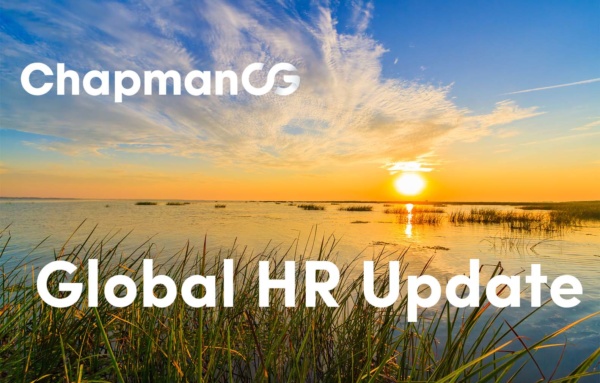The Chapman Consulting Group hosted two animated HR Leader Networking Sessions in Jakarta last week. The first took place at Microsoft and the second at ANZ in their brand new learning and development centre. As always, the discussions amongst our Indonesian HR community were energetic and engaging. Representatives joined us from a diverse range of companies including Alcatel Lucent, AXA, Bakrie Telecom, Ceva Logistics, Ericsson, Johnson & Johnson, Leighton, Lippo Group, Mondelez, Nissan, Nokia, Novartis, PermataBank, Sime Darby and Triputra.
Innovation Critical
Whilst a range of topics were covered throughout the sessions, the challenges around attraction, retention and attrition are clearly still top of mind for most Indonesian HR directors. Microsoft has addressed this head-on by changing the structure of the way they work. It’s no longer about hierarchy for this company, as Marta Jonatan, HR Director Indonesia summed up, “It’s about people: individuals, groups and communities. Work is not just a place you go everyday, it’s an activity that we do, delivering from anywhere, anytime.”
Microsoft’s progressive approach to work, which now focuses more on output and performance, has been a really powerful engagement tool, especially amongst generation Y Indonesians – a group which has grown up in the virtual world and craves a more flexible working approach. Social media and the use of internal collaboration “enterprise media” have allowed Microsoft to augment internal communication. It becomes quicker to share ideas and is a more enjoyable way to interact with colleagues. Tools like status updates can give an instant read on people’s availability and likely responsiveness which can help time management. Whilst an element of trust is required, the focus on results does allow more freedom. As Marta put it, “Generation Y is no longer an age but more about attitude and behaviour.”
It is equally important to value face to face interaction and Microsoft still has a day when employees come to the office to share and work together. However, the company still holds the strong view that peers will keep people in the company, as opposed to managers. Embracing this virtual world is not only improving performance, but more importantly it is driving engagement and critically, retention.
Round Peg Square Hole
Whilst this change in structure comes naturally in the technology sector, it can be a real struggle for other industries to embrace. Industries where employees are needed on-site, such as mining, do not have the option to roll out a consistent policy in this area. In some such organisations where these tactics have been tried in a head office environment, the result has been a ‘them vs. us’ culture between those in the field and those in the more corporate roles. If changing the working culture in this way isn’t an option to drive engagement, is compensation the only tool?
It appears the banks have found a compromise, and ANZ has been focussing on building the right culture to create engagement. The company has built a connected culture where people are encouraged to have an international or “super regional” mind-set. According to Sulianti Setiabudi, HR Director at ANZ, “Having inspirational leaders equipped with an inherent ability to bring people together in a vibrant workforce is the key.”
Setiabudi’s message was to, “Invest in training, which creates well rounded employees who are versatile enough to hold a number of positions, and this will help retention.” The bank has also implemented Corporate Social Responsibility training and a financial literacy training program that help the workforce to engage with the wider community. Likewise, job swap initiatives with other South East Asian countries have helped to galvanise and engage the Indonesian workforce. Having a strong and supportive country CEO has helped ANZ Indonesia top the group employee engagement survey results.
These creative strategies around engagement are working but as Luky Suadi, HR Head PermataBank emphasised, “In our industry, by our nature, we work long hours and you simply cannot work from home in some disciplines.” By building a ‘lounge’ environment where employees can work on their laptops, access the system, and collaborate virtually, the company has managed to generate some flexibility. Likewise the bank encourages the use of Twitter and Facebook for employees, as well as customers, to share and communicate, although this does have to be moderated.
Alcatel Lucent Indonesia has implemented a Flexible Work Arrangement (FWA) since 2011 as part of a retention effort and also a strategy to provide a work/life balance without sacrificing productivity and quality of work, whilst creating more efficiency for the company. The policy is announced openly to all employees, although only certain job functions can implement the FWA one day or more per week. For employees with job functions that require them to be in the office, a manager’s or department head’s discretion is needed to allow the FWA when needed. For example, in the Finance department employees can have an FWA day after each closing task has been completed. The Administrative Assistants (AA) function as a pool, like a shared service team, so when one AA needs to be off-site, the rest of the team can do her work. The team sits close to one another, which makes it easier to manage job distribution and delegation. As Rosa Hanis, HR Director, Alcatel Lucent Indonesia summed up, ‘We trust employees first and then they return the trust with performance and accountability.”
Benefits Beyond the Virtual
There are other innovative initiatives and benefits that can help drive engagement beyond virtual working and cultural change. Basic lifestyle improvements for employees can have a similar effect. Putting in place free gyms and/or training sessions for staff, canteens in remote locations, clinics and laundry services all have a positive impact. In more unionised, blue-collar environments this can be achieved by increasing more flexible shift patterns. Sime Darby has set up a range of facilities in remote sites, aimed at improving employees’ lifestyles. Building tennis courts, gyms and schools have helped to engage communities in meeting a need while linking to the families of the workforce. The creation of schools in these areas can also help supply a talent pool further down the road.
The on-going risk with all of these strategies is that companies may be creating and developing talent that can be easily extracted by an organisation with a bigger chequebook. Remuneration is still a huge attraction and extraction tool, although it was agreed it is perhaps not a long-term approach to engaging and retaining the Indonesian workforce.
The Chapman Consulting Group would like to especially thank Sulianti Setiabudi at ANZ and Marta Jonatan at Microsoft for hosting these sessions.
 Andrea Merrigan
Andrea Merrigan Orelia Chan
Orelia Chan Stanislav Medvedev
Stanislav Medvedev Fleur Daniell
Fleur Daniell Finian Toh
Finian Toh Tim Rayner
Tim Rayner Nicola Hasling
Nicola Hasling Stefanie Cross-Wilson
Stefanie Cross-Wilson


